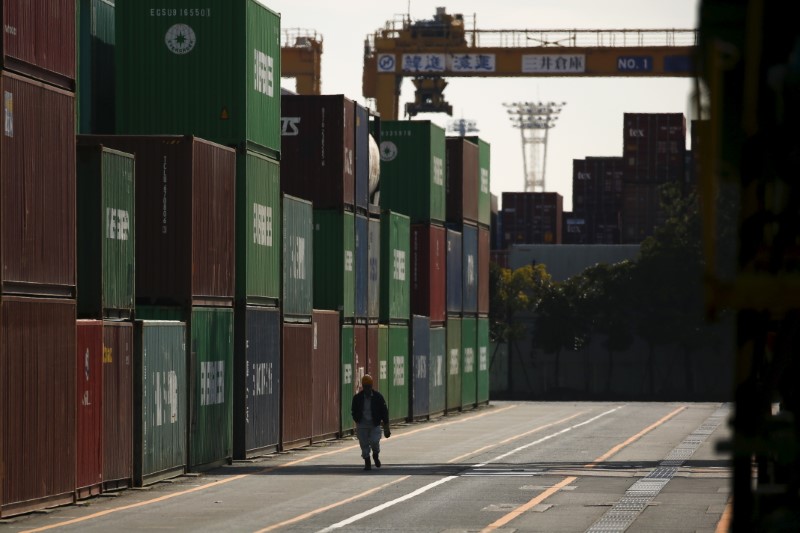By Stanley White
TOKYO (Reuters) - Japan's export performance improved strongly in November as rapid decline in the yen and a recovery in overseas demand boosted shipments from the trade sector, handily beating economists' expectations.
Ministry of Finance (MOF) data showed on Monday that exports fell 0.4 percent in the year to November. That compares with the 2.0 percent annual decline expected by economists in a Reuters poll, and follows a 10.3 percent decline in the year to October.
The value of exports to China, Japan's largest trading partner, rose an annual 4.4 percent, the first increase in nine months due to higher shipments of car parts.
In terms of volume, exports in November rose 7.4 percent from a year ago, more than a 1.4 percent annual decline in the previous month in a sign that external demand is picking up.
The data is likely to offer encouragement to the Bank of Japan, which is leaning toward upgrading its economic outlook at a meeting ending Dec. 20 because officials are becoming increasingly confident that global trade is emerging from the doldrums, four sources said.
"The weak yen helped a lot, but volumes show there is a genuine recovery in exports," said Shuji Tonouchi, a senior market economist at Mitsubishi UFJ Morgan Stanley (NYSE:MS) Securities.
"There could be a slight moderation in exports after the year-end shopping season. However, the BOJ will view this data in a positive light."
Exports fell in November at a slower pace, because the value of car and steel shipments declined less than the previous month, the data showed.
The yen
The yen has fallen further this month, and is now within distance of a 10-month low.
Exports to the United States, in terms of value, fell 1.8 percent year-on-year versus an 11.2 percent annual decline in October. An increase in car exports helped slow the overall decline in U.S.-bound exports, the data showed.
Imports fell an annual 8.8 percent versus the median estimate of a 12.6 percent fall as imports of pharmaceuticals, oil and liquefied natural gas fell.

The trade balance came to a surplus 152.5 billion yen ($1.29 billion), versus the median estimate for a 227.4 billion yen surplus.